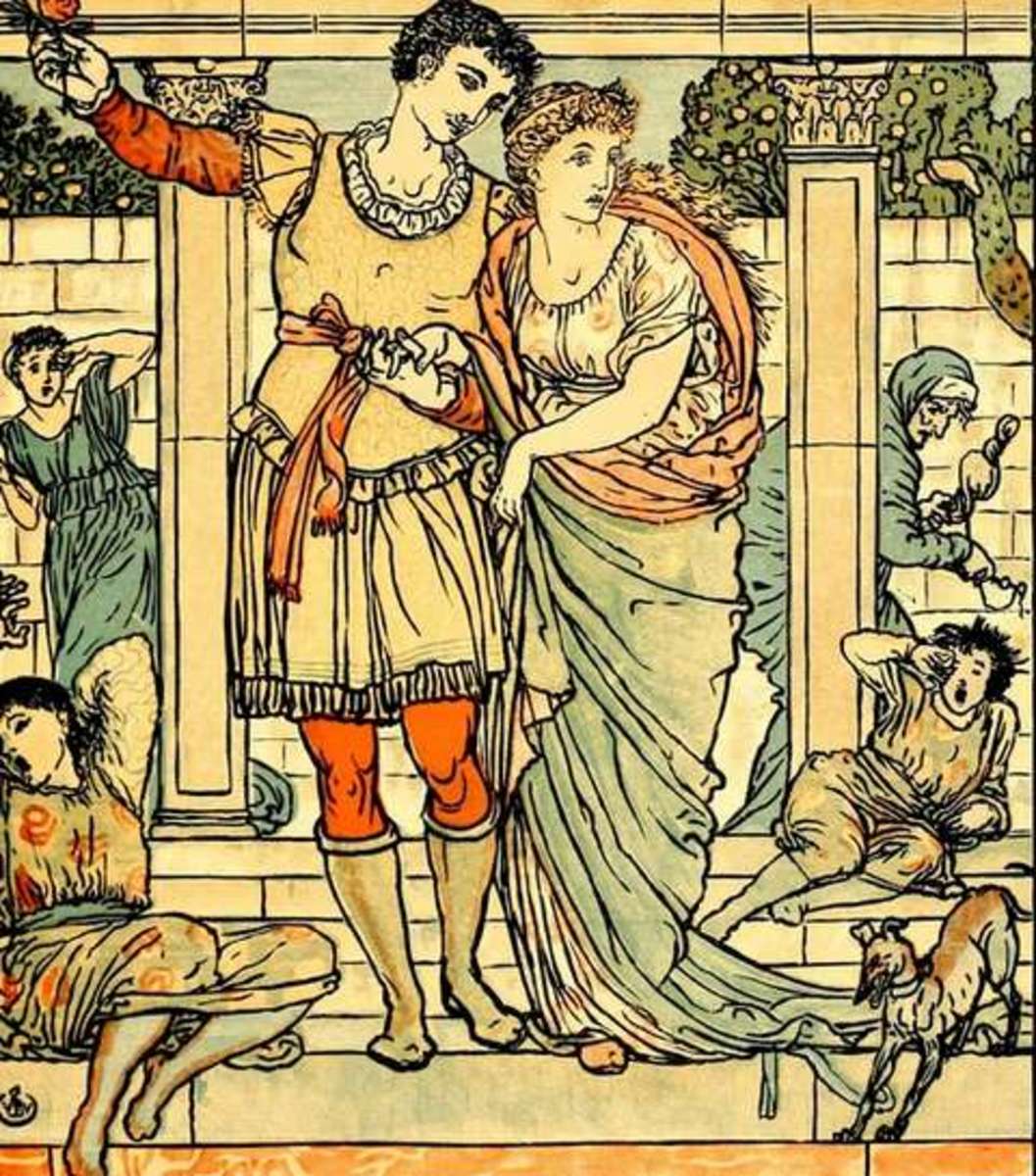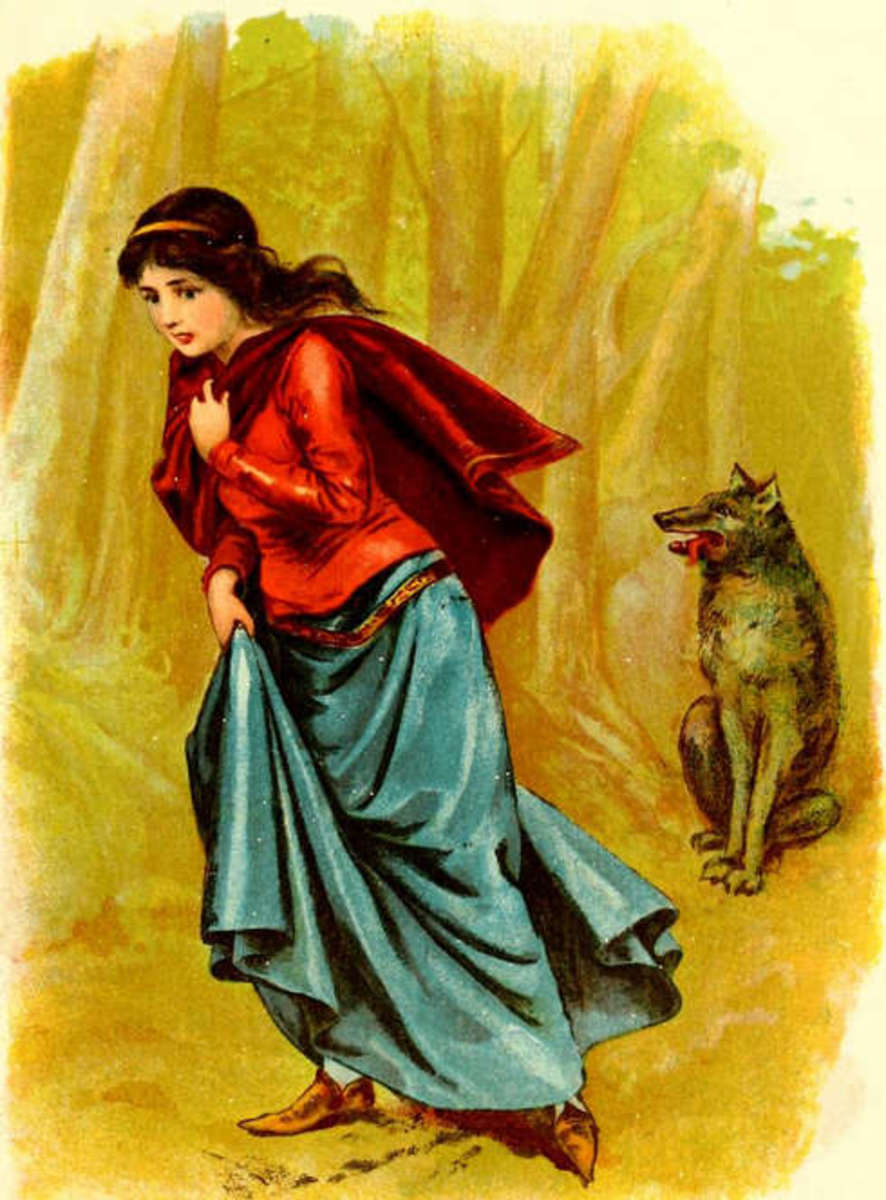Audiobook Contemporaries: Middlesex by Jeffrey Eugenides
Born Twice: POV Sleight of Hand
There is something very calculating about Jeffrey Eugenides Pulitzer prize winner, Middlesex . I didn’t notice it on first listen, perhaps because the audiobook (which is how I consume books these days) and Kristoffer Tabori’s narration is completely engrossing. His letter perfect depictions of the Big Greek Family puts the listener right there with them. But as the coming-of-gender story of Cal/Calliope the hermaphrodite wore on I started to wonder why I wasn’t feeling more for him/her and his/her problem, which as problems go is a real whopper: Am I a woman or am I a man?
Eugenides wastes no time in letting the narrator, whose gender identity is hidden when the story begins, lay out the conundrum:
“I was born twice: first, as a baby girl, on a remarkably smogless Detroit day in January of 1960; and then again, as a teenage boy, in an emergency room near Petosky, Michigan, in August of 1974. Specialized readers may have come across me in Dr. Peter Luce’s study, “Gender Identity in 5-Alpha-Reductase Pseudohermaphrodites, …” (p. 3)
When we read this first sentence, we may stop and wonder: whose voice am I hearing, a woman’s or a man’s? This is answered a few paragraphs later:
“And now at the age of 41, I feel another birth coming on.” (p. 3)
Since the first sentence informed us that he/she switched to a male in his teens, we know this is a man telling the story. Or is it? The next paragraph begins:
“Three months before I was born…” Wait a minute! Who’s this omniscient narrator who’s telling the story that neither Calliope (the little girl) or Cal (the remake) was around to see?
And so it goes through Middlesex, with Eugenides seamlessly assigning the best narrator for each section : he can play the omniscient storyteller, looking back and getting in the heads of three generations of Stephanides while at the same time playing the 41-year old Cal in the present, describing scenes as they happen; he can play himself as the young Calliope, switching from present to past tenses and sometimes summoning the voice of Cal to provide details that Calliope is uncomfortable remembering; she can look at the world through the eyes of a girl or he can look at the world through they eyes of a man. And, to top it off, he/she will address the reader directly in second person, just in case all these various gender identities and POVs get complicated.
The Author as a Goateed Man

Jeffrey Kent Eugenides
Jeffrey Eugenides, born March 8, 1960 was raised in Detroit, Michigan, and has incorporated his unique and haunted experience of that dying city into much of his fiction. In addition to numerous short stories and essays, he's published three novels: The Virgin Suicides (1993), Middlesex(2002), and The Marriage Plot (2011). Middlesex received the 2003 Pulitzer Prize for Fiction and was a finalist for the National Book Critics Circle Award, theInternational Dublin Literary Award, and the Prix Médicis. The Virgin Suicides was made into a Hollywood picture.
"I think most of the major elements of American history are exemplified in Detroit, from the triumph of the automobile and the assembly line to the blight of racism, not to mention the music, Motown, the MC5, house, techno."
Now Mr. Eugenides lives in Princeton, New Jersey, where he is Professor of Creative Writing , husband and father.Of teaching creative writing, Eugenides remarked in an interview in The Paris Review, "I tell my students that when you write, you should pretend you're writing the best letter you ever wrote to the smartest friend you have." Good advice, so long as you're not explaining why you never write anymore.
Kristoffer Tabori

A Veteran Voice
KristofferTabori has been as prolific on-screen as he has been off-screen. His career in voice-only work has been long and distinguished. From Avatar: The Last Airbender to characters in The Adventures of Don Coyote and Sancho Panda as well as the home video series The Greatest Adventure: Stories from the Bible, Tabori has won Audie Awards and narrated over a hundred books. He's also appeared on TV and in movies since he was a kid.
A Book Club Discussion
The Grecian Formula
The story is also complicated in scope, spanning three generations of Greeks beginning in the Turkish-occupied city of Bersa, through the burning of Smyrna in 1922, across the Atlantic to NYC, then to Detroit, where the the grandparents settle and the family grows. Ostensibly the primary narrator, 41 yr-old Cal, is telling the story from his apartment in Berlin, where he will adopt close third person and see the world through the eyes of whichever character is the current focus. Oddly, Cal's 41-year old Berliner first person voice takes up the least amount of narrative space in the overall story.
So from the start the story takes a back seat to what feels like a public demonstration of an author exercising his skills as a craftsman, or a magician working a shell game. As a writer that is always looking for deft execution of the craft, I became distracted by the shifting POV (which really is impressive). I also think that Eugenides allowed himself to get distracted by his own solutions to the very real challenge of telling the hermaphrodite’s story, to the point where the main characters, Cal and Calliope, are emotionally underdeveloped. Their characters are not nearly as interesting as Desdemona the matriarch and her brother/husband Lefty, and their children/Cal-liope’s parents Milton and Tess.
If I were to pick the brains of the Pultizer Prize committee in an attempt to learn what made Middlesex a winner, I wouldn't be surprised to hear that Eugenides handling of POV in such a graceful and completely transparent fashion is so remarkable in an of itself that it warranted the award. That master craftsmanship, in my humble opinion, is hardly enough to make this coming of age story on steroids worthy of The Pulitzer. Yet it's precisely this attention to how the story is told that ultimately sabotages the story itself. As it unfolds from this narrator to that narrator to yet a new narrator and back again we get the feeling that the novelist is more interested in defying gravity with a truly "oh wow" narrative structure than he is is telling what could be a much more interesting psychological and physical conflict. However, neither Cal nor Callie nor Calliope have a distinctive voice or outer characteristic to indicate they aren’t perfectly normal, well-adjusted individuals.
But had Eugenides made Cal/Calliope more prominent and exposed more of the neuroses that we might expect to accompany such a condition , the novel might not have had the of broad scope of a prizewinner. So Eugenides is left to manufacture some plot elements that are awkward and forced. The business with Desdemona working for the Black Muslims, and the leader of the Black Muslims turning out to be the two-bit rumrunner Jimmy Zizmo is clever when first encountered, but it doesn't set well, and after awhile we begin to see it for what it is: a forced plot element designed to give the novel some sort of historical and sociological heft. The final scene of Milton's fantastical post-mortem flight over the city of Detroit in his Cadillac also feels forced, as if an editor told Eugenides that Milton, the steady father, had to go out with a big bang. Appearing as it does in the denouement I almost felt that I missed the point of the whole story: it wasn't about Cal/Calliope's struggle with her wacky hormones and freaky vagina as much as it's supposed to be about Milton, the 1st generation Greek making big money off of hotdogs in America. The editor got their Big Bang alright; it just about blew the rest of the story right out of the water.
Audiobook Cover

A Hard Act to Follow
The other unnatural characteristic of the novel is that almost all of the primary characters are likeable, with the exception of Jimmy Zizmo (and the Turks, of course). The "Obscure Object", Calliope's teen lesbian love interest, has the potential to be unlikeable but Eugenides show great restraint to ensure that nothing gets more outrageous than the main premise: a man with a very small penis being brought up as a girl, or a girl with a huge clitoris but lacking every other female hormone trying to be a normal girl.
In order to avoid upstaging Cal/Calliope and the story he/she is telling, we don't get a sense of any serious conflict between the characters, beyond the stereotypical bellyaching of men and women in their traditional male/female roles. There’s also the internal conflict and profound guilt weighing on Desdemona, who takes responsibility for creating this “monster”. And there's always the rather light soap-opera psychological conflict going on between Callie/Cal and their respective opposites, and the conflict created by his/her relationships with the opposite sex. There is also historical conflicts built in because of the social turmoil beginning with the Greeks and the Turks and the burning of Smyrna, then with the depression, then moving through the more docile fifties. But as far as conflict between individuals go, there is very little. I suspect this is because Eugenides wants us to focus on the conflict within the protagonist(s), which is not nearly as intense or profound as we might expect it to be.
I guess I'm probably splitting hairs trying to pinpoint this vague dissatisfaction with Middlesex. It's a wonderful read, and I particularly enjoy the attention to historical detail: the fins on Milton's Cadillacs, the Zebra Room, Milton playing the clarinet against Tessie's bare skin, Desdemona and Lefty, brother and sister, consummating their marriage in a lifeboat astride the ship with the captain strolling by on the deck with his hands clasped behind his back, the "sex" scenes with Callie and the Obscure Object, the sex shows in North Beach - all wonderfully vivid and rich with detail. It could be that the little gold seal on the cover of the book had me expecting a true masterpiece. I was hoping for something more from Cal/Calliope in terms of serious neuroses and screwy behavior.
It IS a story about aberrant genitalia, after all!



